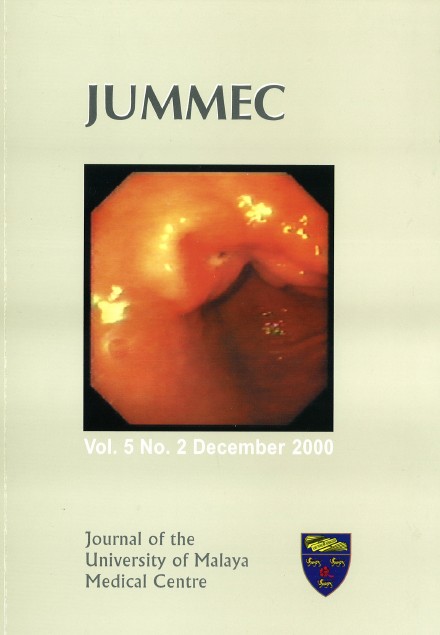Medical Therapy for Bleeding Peptic Ulcer
Abstract
The majority of patients with upper gastrointestinal bleeding due to
peptic ulcers stop bleeding spontaneously. The remainder of patients who have persistent
or recurrent bleeding will require surgical or endoscopic intervention. Medical
therapy provides an attractive alternative to these two treatment options. The advent
of H2 antagonists in the mid 1970s revolutionized the treatment of peptic ulcer disease
as it provided good ulcer healing with a treatment course of 6-8 weeks. A more potent
acid suppressing class of drugs: the proton-pump inhibitors (PPl's) were introduced in
the late 1980s and provided even better and faster ulcer healing. It was natural that the
acid suppressing drugs were also used for the treatment of ulcer bleeding. Intravenous
H2 antagonist and more recently intravenous PPI's have routinely been prescribed in
many hospitals as soon as a bleeding patient is admitted. Critical evaluation of the
literature shows, however, that H2 antagonists are no more effective than placebo in
stopping ulcer bleeding. The PPI's, on the other hand, have been shown in several
clinical studies to have a beneficial effect. The action of acid suppression in stopping
ulcer bleeding is believed to be due to its effect in the stabilization of an ulcer clot by
providing a high pH milieu and to commence the process of ulcer healing.
Downloads
Published
Issue
Section
License
All authors agree that the article, if editorially accepted for publication, shall be licensed under the Creative Commons Attribution License 4.0 to allow others to freely access, copy and use research provided the author is correctly attributed, unless otherwise stated. All articles are available online without charge or other barriers to access. However, anyone wishing to reproduce large quantities of an article (250+) should inform the publisher. Any opinion expressed in the articles are those of the authors and do not reflect that of the University of Malaya, 50603 Kuala Lumpur, Malaysia.


